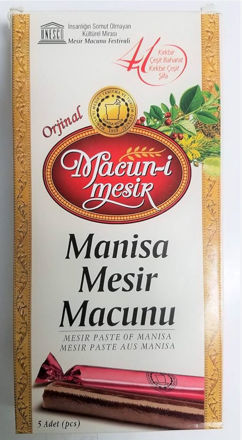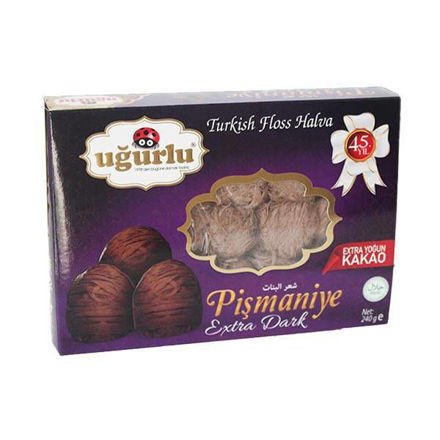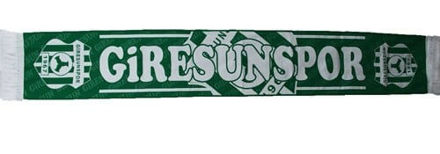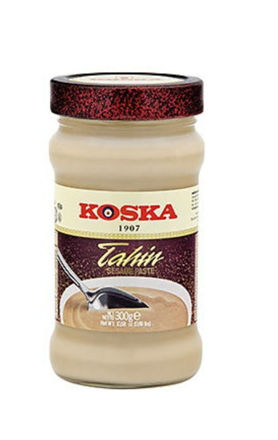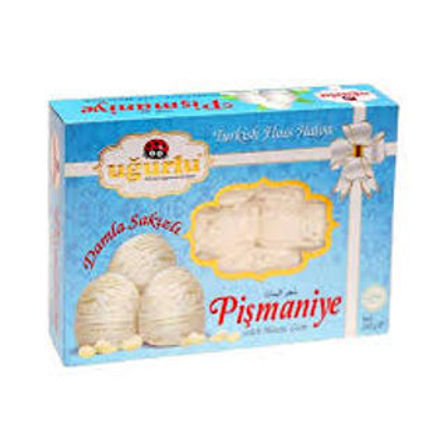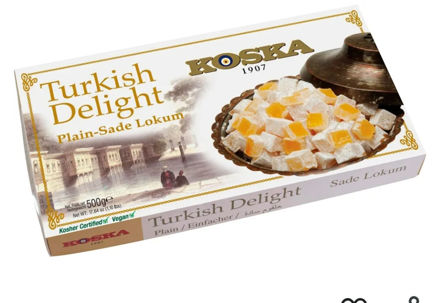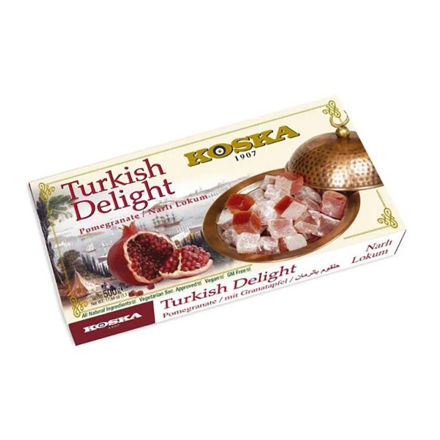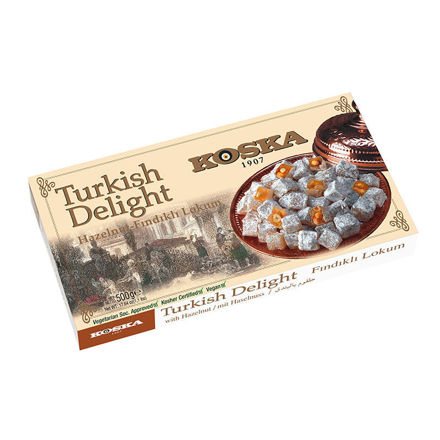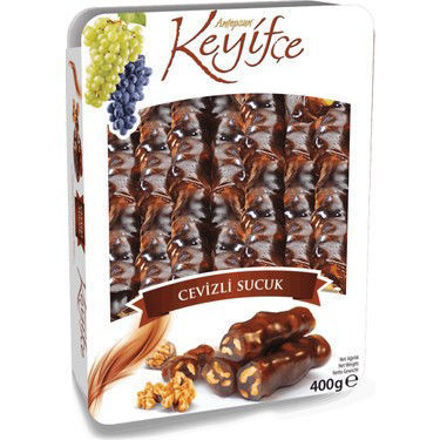Grand Bazaar
Made by flossing wheat flour with sugar until they form thin strands, and eventually into a ball of compressed sweetness, Floss Halva, or “Pismaniye,” is a treat many generations of children have grown up eating in Turkey. Similar yet denser than cotton candy, our Pismaniye is still made with our traditional family recipe. Ugurlu is a family-owned Turkish business you can trust.
$6.99 $9.99
Tahini is produced from 100% sesame seeds and Koska tahini products are completely natural. It does not contain additives. Tahini is a food rich in fat content. Koska produces tahini from 100% pure sesame in its own facilities, using the latest technology and in accordance with hygienic rules. Tahini does not deteriorate if kept at room temperature. It does not undergo any changes except that the oil rises to the top. If this happens, you can quickly shake the jar.
$8.99
Made by flossing wheat flour with sugar until they form thin strands, and eventually into a ball of compressed sweetness, Floss Halva, or “Pismaniye,” is a treat many generations of children have grown up eating in Turkey. Similar yet denser than cotton candy, our Pismaniye is still made with our traditional family recipe. Ugurlu is a family-owned Turkish business you can trust
$8.99 $9.99
With origins dating back to 18th century Turkey, Turkish Delights are square gel-based confections made with cornstarch and sugar syrup, sometimes with special flavorings, and oftentimes chopped nuts or shredded coconut. Turkish Delights, known as “Lokum” in Turkey and the Middle East and “Loukoúmi” in Greece, were considered rare delicacies during the Ottoman Empire. Today, these dense, chewy candies are popular Mediterranean, Middle Eastern and Southeastern European sweets. Koska Turkish Delight Hazelnut feature chunks of crunchy hazelnuts in each square, with a coating of icing sugar. Koska is the largest producer and exporter of Lokum in Turkey and still uses the original, traditional family recipes for all their offerings.
$9.99 $12.99
With origins dating back to 18th century Turkey, Turkish Delights are square gel-based confections made with cornstarch and sugar syrup, sometimes with special flavorings, and oftentimes chopped nuts or shredded coconut. Turkish Delights, known as “Lokum” in Turkey and the Middle East and “Loukoúmi” in Greece, were considered rare delicacies during the Ottoman Empire. Today, these dense, chewy candies are popular Mediterranean, Middle Eastern and Southeastern European sweets. Koska Turkish Delight Hazelnut feature chunks of crunchy hazelnuts in each square, with a coating of icing sugar. Koska is the largest producer and exporter of Lokum in Turkey and still uses the original, traditional family recipes for all their offerings.
$9.99 $13.99
With origins dating back to 18th century Turkey, Turkish Delights are square gel-based confections made with cornstarch and sugar syrup, sometimes with special flavorings, and oftentimes chopped nuts or shredded coconut. Turkish Delights, known as “Lokum” in Turkey and the Middle East and “Loukoúmi” in Greece, were considered rare delicacies during the Ottoman Empire. Today, these dense, chewy candies are popular Mediterranean, Middle Eastern and Southeastern European sweets. Koska Turkish Delight Hazelnut feature chunks of crunchy hazelnuts in each square, with a coating of icing sugar. Koska is the largest producer and exporter of Lokum in Turkey and still uses the original, traditional family recipes for all their offerings.
$9.99 $12.99
Sausage with grape molasses, which is among the ancient flavors of Anatolia, continues to be produced in accordance with traditional methods. You can consume walnut and molasses sausage as a snack and use it to decorate your milk desserts. Molasses and walnut sausage, where the flavors of molasses and walnuts are combined with patience, is produced from molasses and fresh walnuts that are boiled almost everywhere in Anatolia in autumn. You will love it when you try the walnut sausage, which is obtained by dipping the walnuts on the ropes into the boiled molasses and then hanging and drying.
$9.99 $11.99
Min: $3.00 Max: $80.00
$3 $80
















